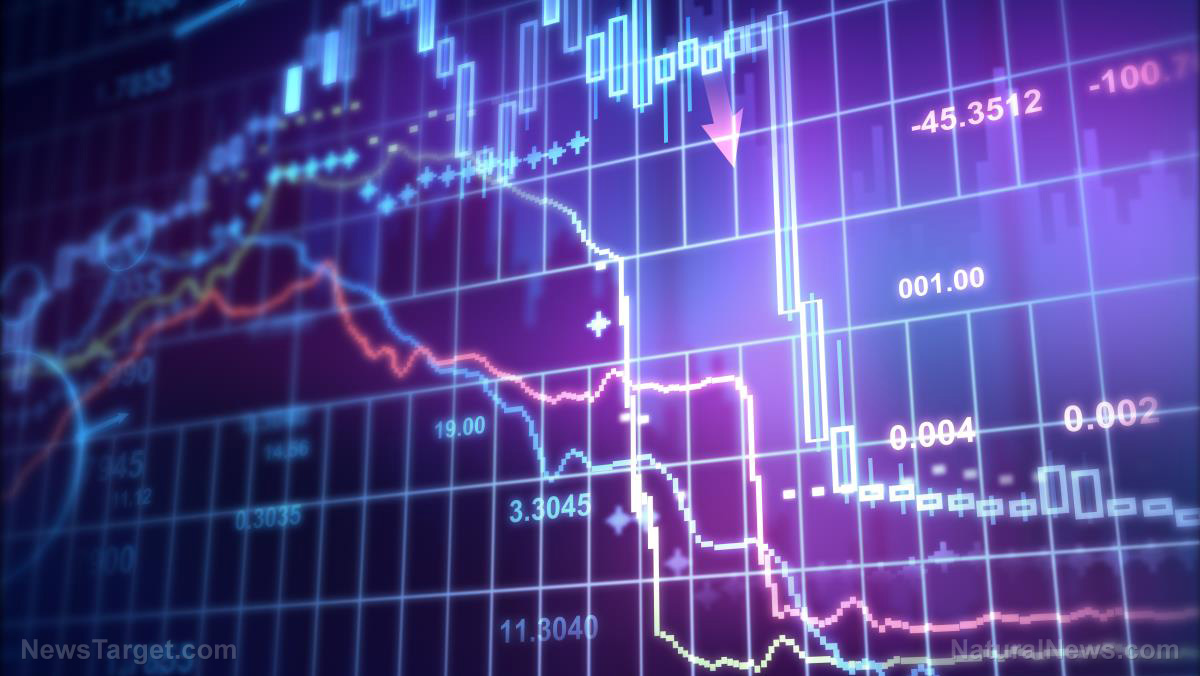 Parler
Parler Gab
Gab
Inflation lowering the value of savings
The U.S. savings rate fell to a 14-year low of only three percent in June. By the end of August, it barely rose at only 3.5 percent. These numbers are a lot lower than reported previously, and because Americans are not sitting on a pile of savings to help them endure high inflation or another recession, there could be a lot of implications on whether or not the economy can avoid another recession in the next four years. Just last year, the government reported a savings rate of five percent in July and at the end of 2021, the savings rate stood high at 8.7 percent. However, newly published data put the savings rate much lower at just 3.5 percent in July, down from the revised 7.5 percent in December. This lower savings rate would not have been a huge deal if it were simply the result of government miscalculations, but this isn't the case. What's more worrisome, however, is how quickly it has fallen – with economists saying that high inflation plays a big role in this situation. Chief economist Gregory Daco of EY Parthenon said: "The hardship caused by inflation means that consumers are dipping into their savings to finance their outlays." Even the current savings rate might overstate the ability of Americans to overspend as the bulk of the savings is in the hands of small businesses and upper-income households. The middle-class and lower-income households have fewer savings and therefore have less ability to spend. Economists were not convinced that Americans have used up the bulk of their savings during the pandemic when the federal government spent trillions of dollars on benefits. Pantheon Macroeconomics chief economist Ian Shepherdson said Americans have used up around 30 percent of their pandemic savings, but there's still around $1.4 trillion or more in "excess" savings available. Others believe the stockpile is even bigger. He noted that this is more than enough to stave off recession next year. Unfortunately, recessions tend to encourage people to save more in case something bad happens, such as losing a job or facing an unexpected medical bill. PNC Financial Services chief economist Gus Faucher said consumers will face difficult times in 2023 and could pull back on their spending when the labor market softens, which could hurt the overall economy. Visit Collapse.news for more information about inflation and the economy. Watch the video below to learn more about how inflation is destroying the savings accounts of Americans. This video is from the Thrivetime Show channel on Brighteon.com.More related stories:
Survey reveals that more Americans are worried about their savings due to rising inflation rates.
Despite wage increases, the average US worker lost money in 2021 due to soaring inflation. Survey finds most global CEOs expect inflation to last through 2023 and beyond. Sources include: MarketWatch.com Ipsos.com Brighteon.comHome buyers hesitate as US mortgage rates soar to 16-year high
By Belle Carter // Share
Americans suffer most severe pay cut in 25 years due to inflation
By Belle Carter // Share
Swiss company unveils fortified luxury bunkers designed for the apocalypse
By Kevin Hughes // Share
Mother of all market crashes is coming, financial cycles analyst Aaron Brickman tells Mike Adams
By Kevin Hughes // Share
Governments continue to obscure COVID-19 vaccine data amid rising concerns over excess deaths
By patricklewis // Share
Tech giant Microsoft backs EXTINCTION with its support of carbon capture programs
By ramontomeydw // Share
Germany to resume arms exports to Israel despite repeated ceasefire violations
By isabelle // Share










